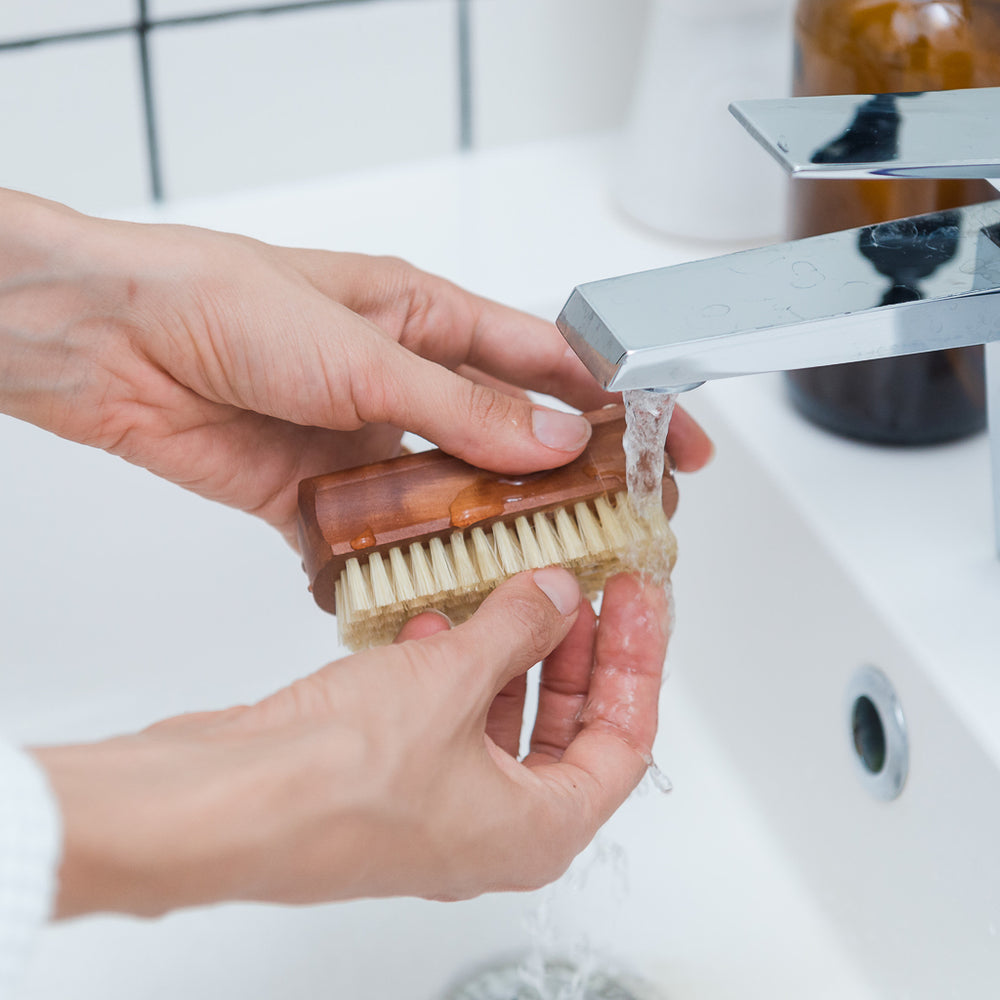Let’s face it. Staying zero waste during COVID-19 isn’t exactly easy. Right now, our top priority is protecting individual and community health while finding a way to get by financially and emotionally, not reducing plastic waste. Even so, much of the infrastructure that supports a zero waste lifestyle has been diminished. Bulk aisles have been pillaged for dry goods with a long shelf life and many stores have removed self-serve bins altogether to prevent contamination. And, just forget about asking for coffee to-go in your own tumbler (if your local cafe is even open).
If you need to take a pause on your plastic-free journey during this crisis, you’re not alone. We all need to do what we can to get through this, and if that means stocking up on some Oreos and hand sanitizer, I won't be one to judge. Try to put the eco-guilt aside, because we all have enough to worry about as it is. That said, if you do want to stay low-waste(ish) during this global pandemic, while also protecting your health and safety, here are some tips to consider.
1. Don’t forget soap. While hand sanitizer is flying off shelves, don’t forget that one of the most effective ways to protect yourself from COVID-19 is frequently washing your hands with soap and water. For a plastic-free option, use soap that comes wrapped in paper, a cardboard box or is package-free. If hands start to get dry, try moisturizing with a natural oil like olive, rosehip, coconut or sweet almond. You can also use soap and water to clean surfaces in your home.
2. Switch to unpaper towels. Arm yourself with long-lasting cleaning supplies to reduce trips to the store. Swap paper towels for unpaper towels or DIY cloth rags cut from old bath towels, t-shirts, flannel sheets, etc. They’re much more durable than paper towels and can be washed with your regular laundry and reused again and again. While microfiber cloths are valued for lint-free cleaning, they also shed plastic microfibers when washed. It's best to stick to towels made from natural fabrics like cotton, hemp and bamboo—you can even compost the lint after washing!
3. Reduce TP use. If you’re worried about toilet paper shortages, consider reducing tp use. Make your roll stretch longer by limiting yourself to a square or two. You could also try a bidet (either attached to your toilet or a portable squeeze bottle) to reduce tp usage. Another alternative is cloth wipes—you place a basket of clean cloths in your bathroom to use for #1s. For #2s, cloth wipes work best in conjunction with a bidet. Wash used cloths with your regular laundry using the hot water cycle.
4. DIY sanitizing spray. Per CDC guidelines, you can make your own disinfecting spray with alcohol solutions with at least 70% alcohol or mixing 1 tsp.of bleach per cup of water in a spray bottle. While I usually prefer to clean my home with more natural cleaning solutions like vinegar and water, I use a DIY disinfecting spray on high touch surfaces including door knobs, light switches, phones and faucets. While bleach and rubbing alcohol both come in plastic, a little bit goes a long way and will replace dozens of plastic cleaning spray bottles.
5. Avoid Single-Servings. If your local bulk options have been reduced or eliminated, packaged goods might be your only option. Reduce waste by purchasing the largest size and avoid single-serving items. For example, instead of individual oatmeal packets, try to buy a large tub of oatmeal or a tin of steel cut oats if available. It’s best to do this with foods that are shelf-stable and you know you go through a lot of. You probably don’t need a giant jar of mayo.
6. Eliminate Food Waste. Don’t be afraid to stock up on fresh fruits and vegetables which contain important vitamins and antioxidants to help keep your immune system strong. Make them last longer by storing them properly without plastic waste. Use a damp produce bag, tea towel or cotton Swag bag to keep delicate greens and herbs crisp. Store asparagus and carrots in a glass of water. Separate bananas from other fruit to prevent overripening. For more tips on plastic-free produce storage, read my blog post here.
7. Shop Your Pantry. Reduce trips to the grocery store and help ensure that others have access to dried goods by shopping your own pantry before buying something new. Build your meal plan around items you already have. It’s a great way to add creativity to your recipe rotation and it will help clear out space in your pantry. Sounds like a great way to jump start spring cleaning in the kitchen.
I hope everyone is staying safe and doing what they can to practice self care during this challenging time. I would love to hear what other ways you are staying low waste, or challenges you are running into. Please leave a comment below!

